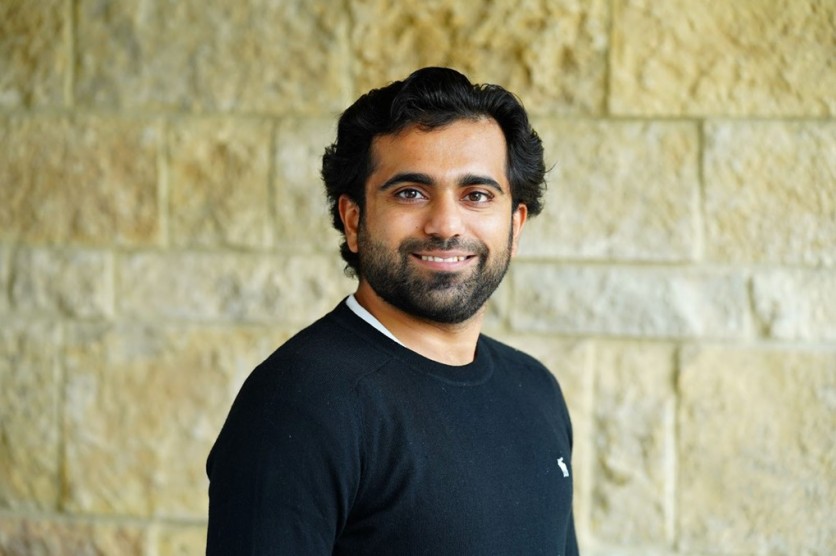
"The future of enterprise IT isn't just about keeping up with change—it's about driving it," says Deloitte senior consultant Shobhit Baijal, speaking with the authority of someone who has not only witnessed but also actively inspired industry trends. In a time when digital transformation and cloud computing are becoming routine, Baijal's perspective is being heard across boardrooms and conference stages, highlighting the relationship between technology and human welfare.
As businesses rush to adapt to rapid technology changes, Shobhit Baijal's work demonstrates what it takes to survive and succeed in a digital-first environment. He primarily uses cloud computing, data architecture, and corporate software solutions to optimize operations and embrace technological advances. His ability to incorporate complex technologies into real-world applications, especially in the healthcare sector, distinguishes him as a solid authority in the IT industry.
The Changing Landscape of Enterprise IT
Enterprise IT is undergoing a profound transformation. According to industry forecasts, the global cloud computing market is expected to reach $1.6 trillion by 2030, with a compound annual growth rate (CAGR) of 16.3% from 2023 to 2030. The increasing need for scalability drives this growth and secure IT infrastructure, which has become critical as more businesses move their operations online and grapple with the complexities of data management.
For experts such as Shobhit Baijal, these developments bring challenges and opportunities. His expertise in cloud migration and data design has helped some of the primary healthcare organizations in the United States update their systems, moving away from obsolete infrastructures and towards more efficient, cloud-based solutions.
In one of his notable projects, Shobhit Baijal was part of the team that facilitated the migration of an extensive database for a life sciences client, significantly improving operational efficiency and data security.
"What we're seeing is a fundamental shift in how businesses think about technology," he explains. "It's no longer just a support function—it's central to everything they do. And that means companies must be more agile, innovative, and focused on long-term solutions." This transformation highlights businesses' need to integrate digital solutions that can adapt to market demands.
A Focus on Healthcare
Shobhit Baijal's IT career began with a focus on healthcare, which has become one of the most data-intensive and technologically reliant sectors in recent years. His experience at a home healthcare startup demonstrated his capacity to develop practical solutions with a meaningful impact.
He was responsible for creating a scalable database architecture that supported an on-demand care app for elderly users, enabling seniors to schedule services with caregivers at the click of a button. This achievement highlights Baijal's ability to apply his technical expertise to solve real-world problems in healthcare, improving access to care for vulnerable populations.
"The impact that technology can have on people's lives is incredible," he says, reflecting on the project. "In the case of home healthcare, it's not just about efficiency—it's about making care more accessible, affordable, and human." Baijal's ongoing research and advocacy for affordable elderly care reflects this precisely. He has written about reducing healthcare costs through cloud-based platforms and continues to explore pricing models that could revolutionize care delivery in the U.S.
Further expanding on this, Baijal authored a research paper titled "Reducing Elderly Home Health Care Cost by Developing a Cloud-Based Digital Platform," which proposes innovative solutions to the growing challenge of providing affordable care for elderly populations. In this paper, Baijal outlines a cloud-based marketplace platform where caregivers, ranging from registered nurses to non-medical professionals like veterans and college students, can offer affordable, on-demand care for elderly people.
The solution leverages machine learning to match caregivers with the needs of elderly clients, ensuring cost-effective, personalized care. This research also explores the potential for wearable sensor technology, integrated with cloud platforms, to monitor elderly patients' health in real time, reducing healthcare costs while improving outcomes.
Baijal's research is pivotal as it addresses the increasing need for accessible care in the face of an aging population. His paper has already garnered attention in academic and healthcare circles, with open access under the Creative Commons license, making it a valuable resource for industry professionals seeking scalable, tech-driven solutions for elderly care.
Cloud Computing: The Backbone of Modern Enterprise
The 2024 Global IT Report highlights cloud computing as one of the fastest-growing sectors, with enterprises expected to spend nearly $800 billion on cloud-related services by 2025. Shobhit Baijal's role at Deloitte places him at the center of this change, where he contributes to designing and implementing secure cloud infrastructures for clients across multiple industries, including healthcare and finance.
As a senior consultant, he has worked on intricate data transfer projects that call for technical precision and strategic insight, further proving his reputation as a subject matter expert in cloud architecture. His method emphasizes the strategic advantages cloud computing provides to companies trying to stay competitive in a dynamic market.
"Cloud isn't just about storage—it's about discovering new possibilities for businesses," Shobhit Baijal explains. "Whether enabling real-time data analytics, enhancing security, or improving collaboration, the cloud can transform every aspect of an organization's operations."
Shaping the Future of IT
Shobhit Baijal is also deeply committed to giving back to the community. He actively mentors first-generation college graduates, offering guidance on job applications and career development. He also volunteers at elementary schools to teach financial literacy and home economics, a testament to his belief in empowering the next generation with essential life skills.
"Technology is an incredible tool, but the people behind it make a difference," he reflects. "That's why I'm so passionate about mentoring—because I believe in empowering the next generation to use technology to solve the challenges of tomorrow."
Leaders like Shobhit Baijal will continue to define the IT sector as it develops further, ensuring technology is used for the benefit of the people. His contributions to healthcare and enterprise IT will continue to influence business and society, showing how technology solutions can be both efficient and human-centered.
ⓒ 2025 TECHTIMES.com All rights reserved. Do not reproduce without permission.




